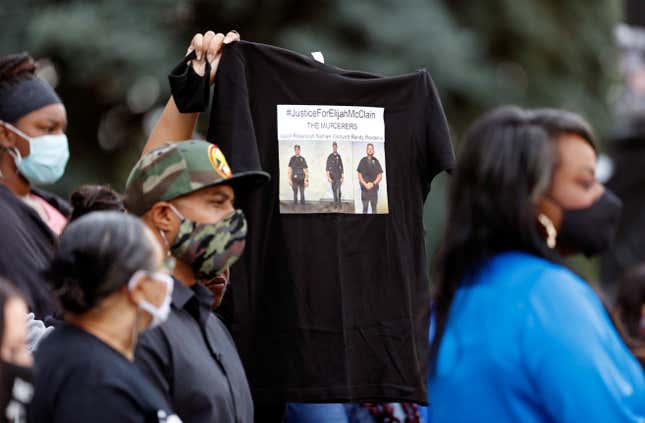
Outrage has grown in the last week over the way the case of Elijah McClain has been handled. McClain was a 23-year-old Black man who died last year during a confrontation with police in Aurora, Colo. After a petition for a new investigation into the case garnered 3 million signatures, Colorado Gov. Jared Polis (D) has appointed a special prosecutor to the case.
CBS News reports that state Attorney General Phil Weiser will launch an investigation into McClain’s death. In a statement, Polis said charges will be filed “if the facts support prosecution.” Weiser’s appointment comes a day after The Root reported that Polis announced his intention to look into the case. “Elijah McClain should be alive today. His life mattered and his death was tragic,” Weiser said in a statement.
That sentiment was echoed by Polis in his own statement. “Elijah McClain should be alive today, and we owe it to his family to take this step and elevate the pursuit of justice in his name to a statewide concern. Now more than ever, we must do everything within our power to foster public trust and confidence in law enforcement and the criminal justice system,” the governor’s statement read. He also claimed that he was “moved” after talking to McClain’s mother.
“They murdered him. They are bullies with badges,” Shaneen McClain said of the officers involved in her son’s death.
District attorney Dave Young, who initially investigated the case, said that McClain was uncooperative with police during the night of the incident last August. His family argues that he was just listening to music while on his way home. Young’s report on the incident quotes McClain as saying, “Can you leave me alone, you guys started to arrest me and I was stopping my music to listen, now let me go.” Young’s report also claims that McClain escalated the situation by reaching for Officer Randy Rodema’s gun.
Mari Newman, the attorney representing McClain’s family, pushed back against that claim. “Don’t you think if he really had grabbed someone’s gun, we would see fingerprints that have been lifted from the gun?” Newman told CBS News. Young said that he hadn’t found evidence that would contradict Rodema’s claim. As the situation escalated, the police put McClain into a chokehold and he eventually lost consciousness.
From CBS News:
Paramedics later arrived at the scene and a medic gave McClain ketamine to sedate him. McClain was then taken to the hospital but suffered cardiac arrest that led to “anoxic encephalopathy,” or loss of blood flow to the brain, and was pronounced brain dead three days later.
According to the DA’s report, the coroner was unable to determine a cause of death — but didn’t rule out the possibility that ketamine contributed. The coroner wrote that McClain was given a “therapeutic level” of ketamine, but could have had an “idiosyncratic” reaction to the drug.
Young made the initial decision not to charge the officers. When asked if the officer’s actions were justified, he said: “Legally, yes.”
On Thursday, Young released a statement that restated his position on not filing criminal charges. “Ultimately, while I may share the vast public opinion that Elijah McClain’s death could have been avoided, it is not my role to file criminal charges based on opinion, but rather, on the evidence revealed from the investigation and applicable Colorado law.” Young wrote. “While the officers no doubt used force in this incident, based on the evidence and the law applicable at the time of Mr. McClain’s death, the prosecution cannot disprove the officers’ reasonable belief in the necessity to use force.”

